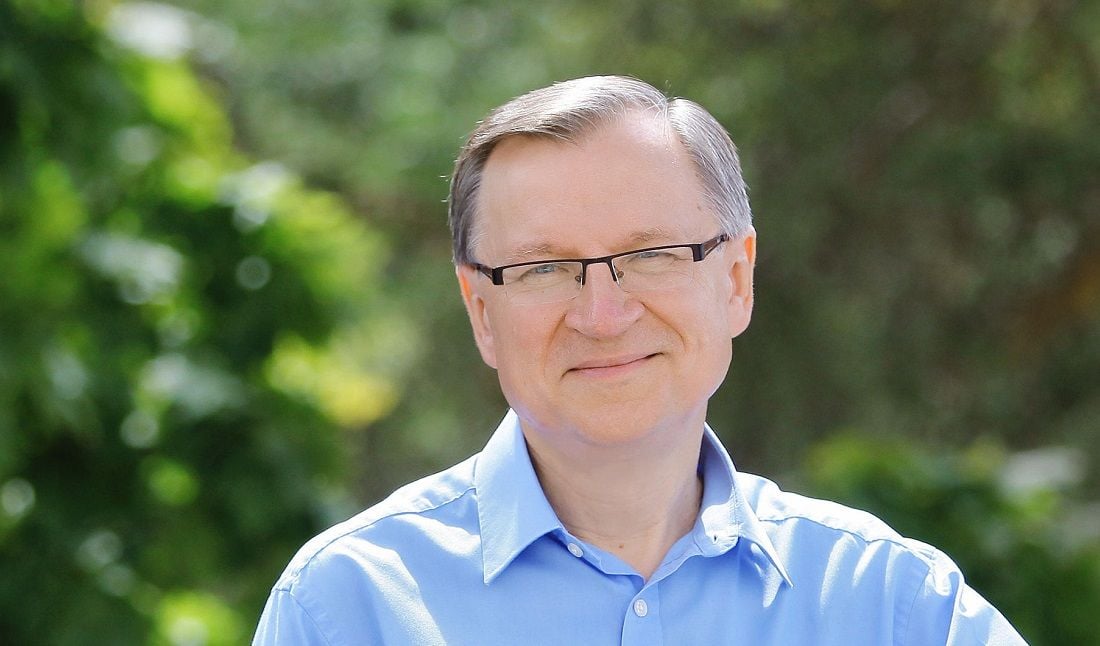
Lithuanian MP Egidjius Vareikis: If we want peace in this region, Ukraine should be a Western-type state
The deputy of the Lithuanian Seimas and member of the Parliamentary Assembly of the Council of Europe, an acclaimed political scientist and expert on international security, a fellow at Vilnius and Kaunas universities Egidjius Vareikis has told UNIAN, how he sees a UN peacekeeping mission in Donbas, how Russia could be forced to change its objectives, and why the economic component of the so-called "Marshall Plan" for Ukraine is just not enough.
Ukraine and Russia are now jabbing at the UN over the possibility of introducing a peacekeeping mission to Donbas and the very format of such mission. Earlier this year, you visited Kramatorsk, Maiorsk, Bakhmut, and other cities across eastern Ukraine. How do you see the mission of "blue helmets", taking into account what you saw in Donbas firsthand?
I will speak, first of all, not taking into account what I saw [in Donbas], but what I know. I saw peacekeeping missions in the Balkan states, Cyprus ... What should I emphasize? First, if peacekeepers are deployed and stationed there, they fix things. Peacekeepers fix the ongoing developments as they are. In many cases, peacekeepers appear to prevent the war from continuing. I can speak for a long time on this one. For example, in Cyprus they have been deployed for many decades, and in fact, by their presence, they have made a border, which, of course, is not recognized but this border, de facto, exists. In Croatia, the Serbian side also wanted them to make a border out of the front line, but the circumstances were different there...
On the one hand, peacekeepers are needed so that the war does not continue, so it seems to be a good move. But, on the other hand, it is the fixation of the realities that exist, and I’m not sure that Ukraine wants to fix the front line as, perhaps, the future administrative border with "something".
If the peacekeepers stand along the officially recognized Ukrainian-Russian border, that’s another thing. Then they will be able to see what is happening between Russia and the territories that are in the hands of pro-Russian separatists.
Therefore, I look at it [peacekeepers in the east of Ukraine] as a very risky endeavor.
In turn, Putin said that he agreed to have UN peacekeepers deployed only along the line of contact in Donbas and only to ensure the safety of the OSCE observers. What do you think about this proposal?
I know what the OSCE mission is. It is not deployed along the line of contact. The OSCE mission is carrying out work that is very far from the front line. Therefore, if the peacekeepers stand on the front line only, they will not in any way be protecting the OSCE mission.
Besides, what are the threats to the OSCE mission? The threats come from separatists and Russia. So, I think, it’s the Russian side which should ensure safety and inviolability of the mission, instead of calling on international organizations to do so.
Of course, an international presence is very important, but it is also important to consider that this presence must not fix the end of the war in favor of Russia.
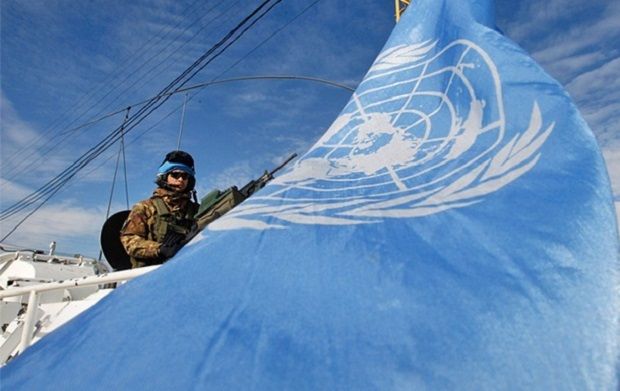
Recently, U.S. Congressman Will Hurd said he was convinced that in order to resolve the conflict, Ukraine needs the withdrawal of Russian troops from Donbas, not the introduction of UN peacekeepers...
I agree with him. The key to solving the whole problem, the whole war, lays in this. The war began and is now ongoing not because there are no peacekeepers, but because there is a Russian military presence there, and we know it. We can call it differently, but this is a Russian presence. If there is no such presence, I think Ukraine can resolve everything by peaceful administrative means.
There have been numerous statements that the introduction of UN peacekeepers to Donbas is an essential component for the implementation of the Minsk agreements. What do you think are the prospects for the implementation of Minsk?
The Minsk deal is a very extensive document that provides for both short-term and long-term measures. If I talk about my personal observations on whether they are being implemented or not, I would say that the Minsk Agreements are now implemented partially. To a certain extent, they prevent more intense hostilities but it seems to me that the parties have no clear tactical plan on what should happen. One side may demand that first comes Ukraine’s decentralization and then the withdrawal of troops, while the other side may claim the opposite. This leads us to living in a state where the agreements seem to be working, but not in full. There have already been such cases in world politics, so this is no precedent. For example, agreements were signed but not implemented, or partially implemented, in the Middle East.
The same with Minsk. Parties implement what’s beneficial to them. I think that we will sooner or later have to once again sit down at the negotiating table and envisage the succession of moves or come up with some kind of Minsk-3.
Now everything has stopped at such a stage that neither side can say that they are winning or losing. There is a stalemate. We need to come up with something new.
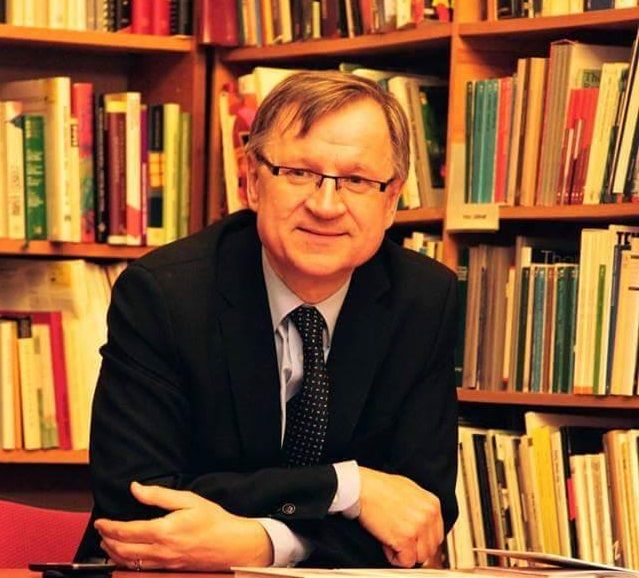
Do you think Russia is ready to change its objectives and contribute to the Donbas settlement?
So far, Russians have not achieved the objectives they set before themselves when starting the war in Donbas. I don’t believe Russia had such modest the objectives it has so far achieved. They created chaos, but they cannot say that they fulfilled their strategic goal of making Ukraine their vassal. This never happened. On the contrary, Ukraine is consolidating against Russia.
Thus, Russia has not achieved its goals. Ukraine has not achieved its goals for the liberation of Donbas and Crimea. Now neither side is happy with what it has.
Is it possible to change Russia's behavior? Of course, it is possible, but I think that now neither Europe nor the entire Trans-Atlantic community does enough to force Russia into changing it.
There was once a president of the United States, Ronald Reagan, who forced Moscow to change their way of thinking. This was a successful pressure on the Soviet Union, which changed its behavior in the post-Brezhnev era. Now we can pin our hopes on President Trump, that he will stick to the tough line. The EU and the former U.S. administration wanted to see the conflict in Donbas in a less painful state, but not resolve it. That is, to stop the disease from spreading, not treat it. And unless there is a radical change in position regarding how we all treat Russia, this situation [the conflict in Donbas] will prevail for years to come.
Alas, there have already been such examples. My country has been an occupied territory for some 50 years. The same situation with Cyprus - almost 40 years… In addition, there are unrecognized borders in the Middle East ...
You can live with unrecognized borders for a long time. But, in the end, you cannot recognize them. Lithuania, the Baltic countries, have at the end of the day benefited from the fact that their occupation was never recognized. It was easier for us to argue our desire to join NATO and the EU, because we had not legally been part of the Soviet Union. Therefore, it is necessary to adhere to the policy of non-recognition of the occupied territories and not to yield to the proposals of those who say "let's recognize the realities". We will recognize legal realities, according to international law, not the realities that have developed.
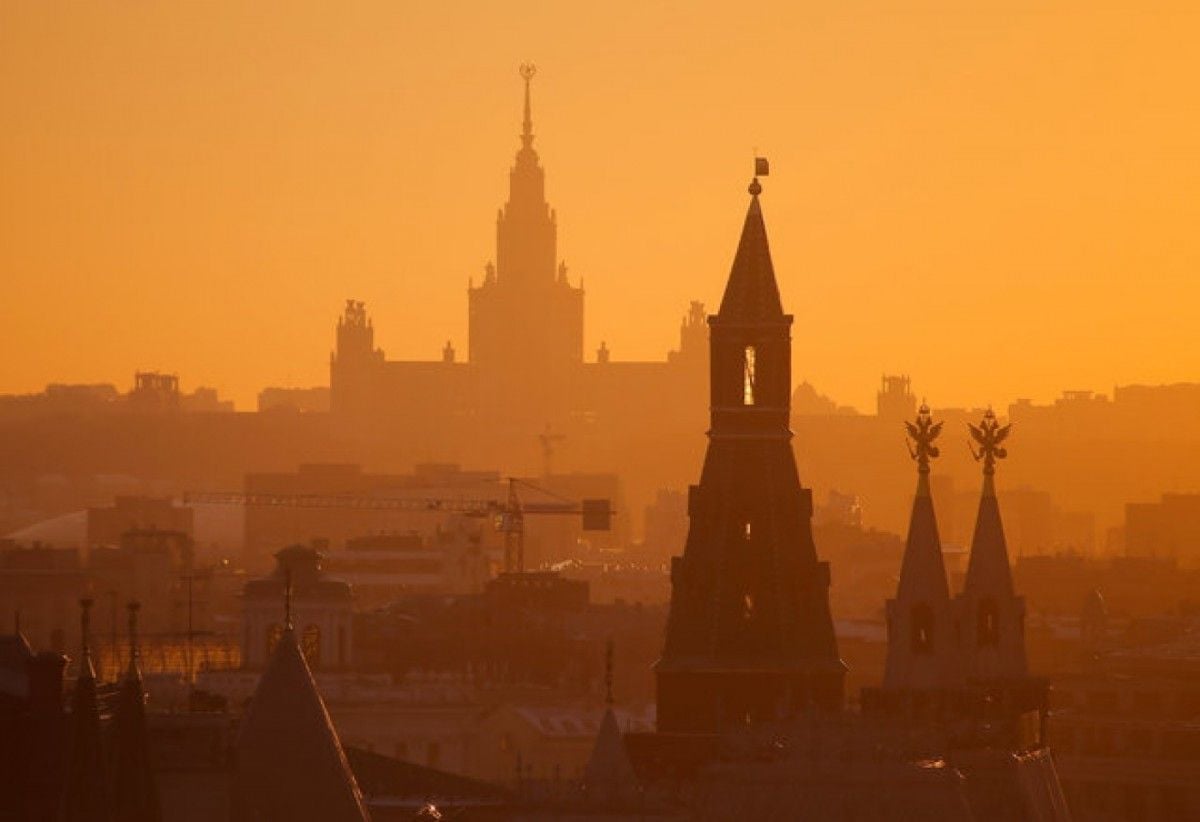
It is necessary to force Russia in various ways to realize that their risky moves, this desire to defeat Ukraine is not a promising one; that Russian policies and such geopolitical kleptomania are not promising either. It must be abandoned. They must refuse both Abkhazia and South Ossetia... Because this is unpromising, it is not prestigious for Russia as such. And I do not think that this is economically or militarily profitable.
As you mentioned, Russia rattles sabers with their weapons and political influence well beyond the Ukrainian Donbas. But one more thing is military exercises in the territory of the satellite country. Earlier this September you could not visit Belarus because you were refused an entry visa. Just at the time, Russian-Belarusian military exercises Zapad-2017 were held. In your opinion, could the decision by Minsk not to issue visas to the deputies of the Lithuanian Seimas be directly influenced by Moscow?
I do not think that there is such direct influence from Moscow as I have for many years been refused a Belarusian visa. As for me, I can say that even without Moscow’s influence, I would not have been given a visa. But since a group of deputies was willing to come to Minsk, they made a simple decision, that it would be better to refuse visas to the whole group. There was this ridiculous argument that the international political conference is not connected with diplomacy, while we intended to travel with our diplomatic passports...
Secretary of Ukraine’s National Security and Defense Council Oleksandr Turchynov opined that the Kremlin at their Zapad-2017 exercises was testing Russia’s readiness to wage a "big war" with the West. Does Lithuania share Ukraine’s concerns in this regard?
We look at Russia seriously. Now it is not predictable with its policy and it remains quite threatening.
The bad news is that for a long time some NATO countries viewed Russian threat solely as a subject of an academic debate. NATO presence in the Baltic States and in Poland was insufficient.
It is good that now in the capitals of NATO member states there is a clear vision that the Alliance is everywhere - in Great Britain, the Netherlands, and Lithuania ... And that we should seriously guard the entire NATO territory under Article 5 of the NATO Charter. Now NATO presence is being increased in Poland and in the Baltics. The countries of Central Europe, including the Baltic states, understand that defense spending needs to be increased. And it’s not only about an increase. We need to improve our defense infrastructure. In the Baltic states, there is an airspace monitoring radar, which is part of NATO's air defense system. This is not too bad, but it is not enough though. And the Zapad-2017 maneuvers, on their part, have become an argument for increasing NATO presence across the region.
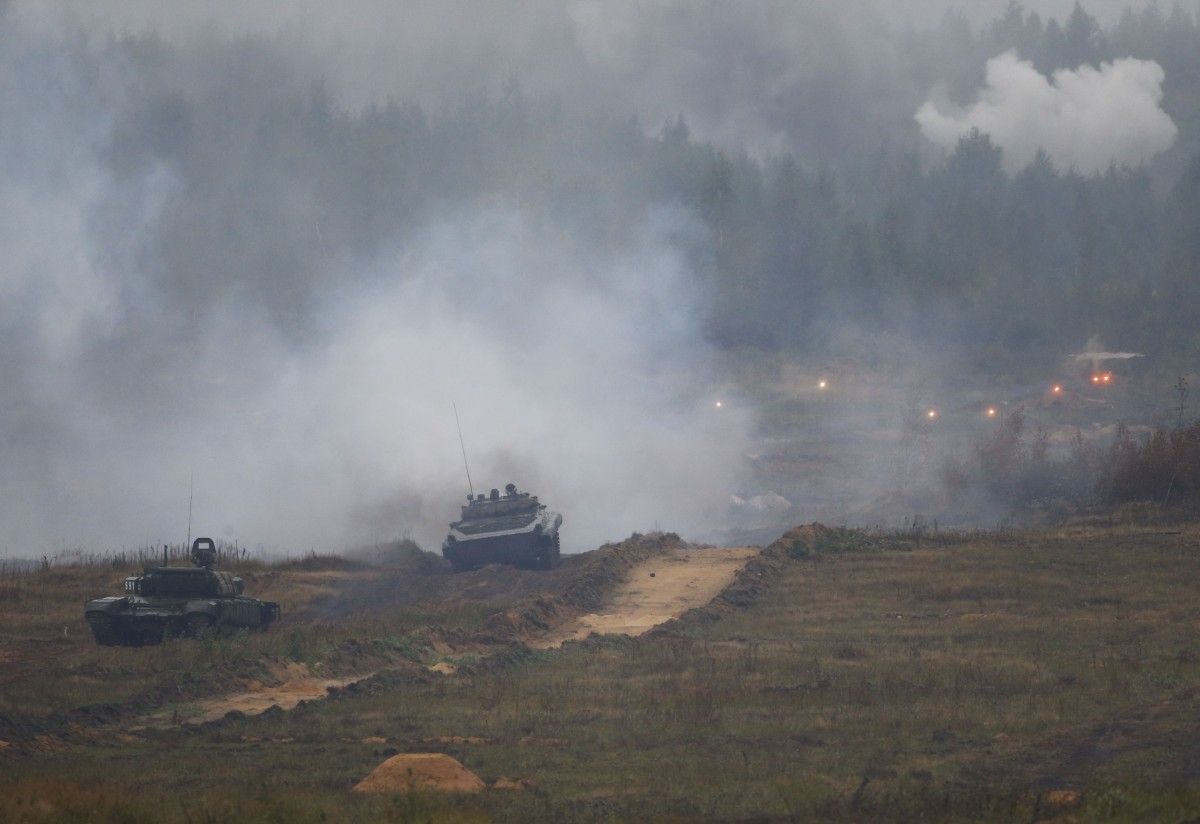
As we know, during the Zapad-2017 drills, two Russian IL76 military transport aircraft violated Lithuanian airspace. The Foreign Ministry of Lithuania handed a note of protest to the Russian ambassador in connection with the incident, while NATO showed no response to the incident whatsoever...
Lithuania's response was very logical as there was a violation of airspace. But, on the other hand, we have a lot of information, so it was not such a provocation, which required quick and radical intervention.
We understand that Russia is destabilizing us, but we also understand that Russia wants to provoke us to such actions so that they could claim that it’s NATO who escalates the situation. This is such a political game the Americans call "Chicken game" – to see who will be the first to get scared. We need to keep our guard but not get scared. We should also let Russians be aware that we understand their game and policy.
We looked at these drills very seriously, but without panic. I think that Russia just wanted to provoke us. We are talking about the fact that the conventional war between Russia and NATO, which Russia played at their war games, is the one of the second half of the 20th century, but now in the 21st century such war is unlikely to happen here. But for Russia it was very important to show that it has a powerful military force, that it must be feared that it must be reckoned with. It is not necessary [for them] to wage war, but for Moscow it is important to shape an opinion that "if Russia wants, it can cause us big trouble."
Now we live in a world where even secondary players become very important because they are unpredictable. Nobody doubts that North Korea is a country dragging behind, and it would not be of no interest to anyone, if not for their nuclear weapons. In turn, Russia not only wants to be interesting to others, it wants to be reckoned with, to have its opinion always taken into account… And, to some extent, Russia succeeds.
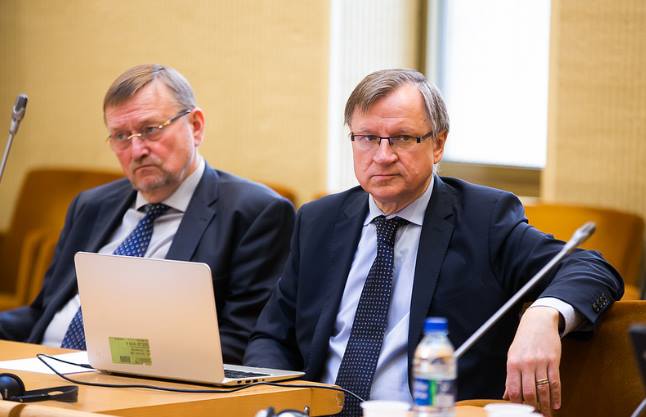
But we have shown no fear. Whatever the intentions of Moscow, our response is that NATO is strengthening its defense.
You are saying that in the 21st century a big conventional war is unlikely to be unleashed, but Russia continues testing its hybrid forms of war in Ukraine. Could such forms be applied against the Baltic states, and is there any fear that those "little green men" will suddenly surface in Lithuania?
Theoretically, this could happen. We are preparing for this. The Romans used to say, "If you want peace, prepare for war." It's no secret that we have a special program to confront the "little green men". We even conducted exercises, figuring out how we should act in this scenario.
War usually starts when you are not ready for it. It is very difficult to start a war with an adversary who is ready and waiting to go for an offensive. NATO is preparing for a possible "hybrid war", possible cybernetic war, and not only in the Baltic states and Poland. The more we prepare, the less likely that such a war will start.
Besides, I think that Russian propaganda in the Baltic states does not achieve its goals. That is, on the one hand, some people may fall for it but, like in Ukraine, Russia's act only consolidates the population around its national government. People know that whatever comes from Russia could be propaganda. That is, now it is almost the same as it was during the Cold War, and we must admit it.
In other words, is Russia now in a state of a new “cold war” with the West?
We were very pleased to say back in the day that we would not draw new lines, but these lines have already been drawn. The Russian side has already outlined them. Trump needs to recall the Truman Doctrine, the doctrine of containing the Soviet Union.
We [the western countries] would like to say officially that we are not containing anyone, that democracy in Russia is only a matter of time, that what is now happening in Russia is not true, while the Russian state and society want to be our ally. We would really like to say so. But in reality, that democracy in Russia does not exist and it is unlikely that it will arise anytime soon. We need to see things clearly. Ronald Reagan once said that we should not be afraid to "see what we see." Still, we are seeing one thing but we want to "draw" something else in our official speeches - that what we are seeing is untrue, that there are no persecutions and violations of human rights in Russia, that there is no Russian aggression...
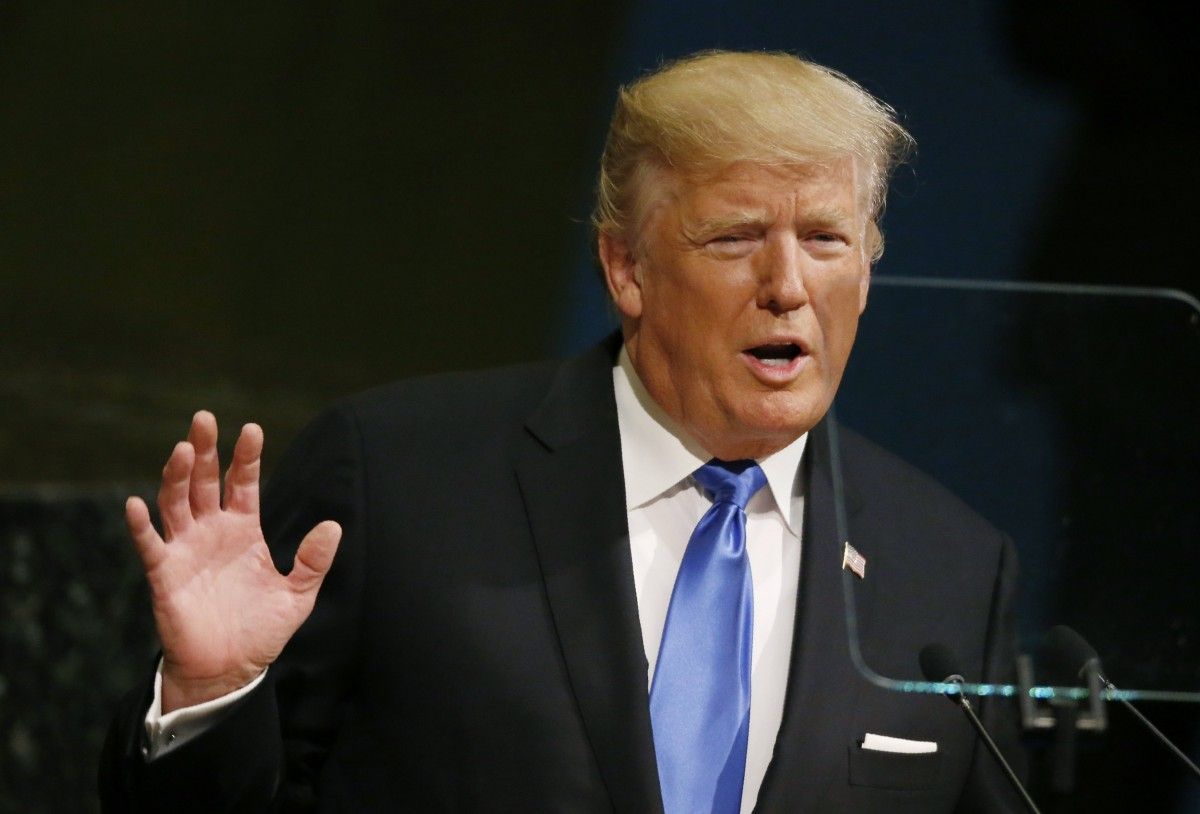
Here in the West, we need an administration similar to that of President Reagan, who was not afraid to tell the truth. That truth really helped. The Obama administration did not want to tell the truth, in order not to spoil relations. But we will not do without truth. Alas, Ukraine knows what truth is, it feels the truth of war and occupation.
Now Moscow is also trying to rock the situation in the Republic of Moldova - there is a confrontation between the pro-European government and the pro-Russian president. What tools could Russia use to destabilize the country? Is it worth expecting that Transnistria will be used to this end?
Moldova is a country that is not only geographically located between Romania and Ukraine, it has its own political way of thinking. In the 1990s, Moldova was forgotten, while all were talking about the integration of Romania, Bulgaria, Czech Republic, and Slovakia. What happened to Moldova was of very few people’s interest. But now Moldova is in a very difficult situation. On the one hand, the government wants to lead the country to the West, while the president (the Moldovans chose him themselves) looks toward the east.
So far, the president's powers are not so great, that is, the president cannot alter the country’s course. But soon the parliamentary election will come [in 2018]. We in the Council of Europe are discussing whether Moldova should change the law on elections. Different political parties express varying political views on the matter. The election process can affect their actual outcome. In democratic countries, this is not how this should go down: if the orchestra's performance depends only on the order we have the musicians seated, then something is wrong with that orchestra...
It might be difficult for Moldovans but they still need to decide who they are. This definition is a very difficult process, but still it is necessary for them to decide, one needs to have some kind of dream, to realize what the country wants to achieve. A few years ago I saw very optimistic attitudes, I heard Moldovans believing that if they act like the Baltic states, everything will be fine for them. But if they say today that now they will act like the countries of Central Asia, it means that something has gone wrong. This largely depends on the voters and, alas, today the situation there remains difficult.
In turn, Transnistria is an instrument that Russia exploits. But it has existed for decades as an unrecognized state. As I see it, it is becoming increasingly difficult to use Transnistria because maintaining is also very costly for Russia, and I think the day will come when Russia will consider whether they should continue to keep hold of this enclave.
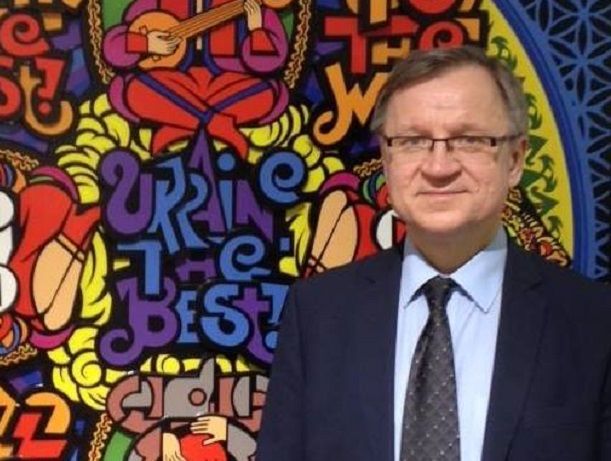
I follow the situation in Moldova and I know that they have so many plans. Over almost 25 years, people figured out how to get by. Transnistria in some ways part of Moldova - for example, in sports and culture. But in some ways it’s not. This whole state of affairs is becoming seemingly softer but in the end of the day, we should not recognize that such a country [Transnistria] exists. We all understand that there is no such state, that this is pure fiction. One day this situation will come to an end and, in principle, I think you are right, this will all end when Russia’s geopolitical act changes.
Lithuanian politicians initiated the drafting of the so-called "Marshall Plan" for Ukraine, which provides for at least EUR 5 billion worth of direct investment annually in the development of the Ukrainian economy for the next 10 years. It is expected that the initiative will be presented at the Eastern Partnership summit in November. How do you assess the prospects for the plan’s approval?
For Ukraine, EUR 5 billion is not enough, of course... I look at the "Marshall Plan" as not an economic assistance to Ukraine but a political one. In general, I am a geopolitician, and I know that if we want peace in this region, Ukraine should be a Western-type state.
Western Europe should help Ukraine. You can't say that first you have to improve and then we will think whether to take you on board or not. We must have Ukraine on our side. And if this plan repeats the original Marshall Plan which was implemented after WW2 and made Western Europe the Western Europe as we know it, then it will be a success. But this requires not only money but a strong political will.
Kostyantyn Honcharov

